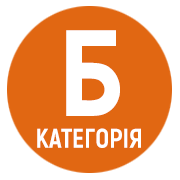THE RELIGIOUS AND CULTURAL FACTOR IN TURKEY’S POLICY REGARDING THE BALKANS AT THE NEW STAGE OF RELATIONS (2016–2020)
DOI:
https://doi.org/10.32999/ksu2786-5118/2024-47-6Keywords:
Turkey, Balkan region, R.T. Erdogan, “erdoganism”, “soft power”, Ummah, mechanism of influence.Abstract
The purpose of the work is to analyze the cultural and religious influence of Turkey on the territory of the Balkan region in the period from 2016 to 2020. The research methods that were used: the method of deduction (the author first studied the picture of general trends in the Balkan region, and only then analyzed in detail their features in individual countries) and induction (everything was summarized in the conclusions), methods of analysis and synthesis (the analysis was used in the main part of the text, and the synthesis is mainly in the conclusions), content analysis (exactly what leading political figures said in their speeches was analyzed), from specifically historical ones – comparativehistorical (religious and cultural influence was analyzed synchronously in different countries), as well as the method hermeneutics in working with sources. Results: it was found out by what methods and with what intensity the religious and cultural influence of Turkey was carried out in various countries of the Balkan region; it was revealed which countries belonged to the primary interests of Ankara, and which countries were secondary; the activity of the main institutions and organizations through which influence was exercised was analyzed; the motivational aspect of Turkey’s geopolitical actions in the Balkans is followed, both obvious and hidden. Conclusions. It was revealed that at a new stage of its political development, Ankara began to pay more attention to countries that were beneficial for it from a pragmatic point of view, that is, those in which it is profitable to invest. In countries such as Albania, Bosnia and Herzegovina, Kosovo during this period, cultural and religious influence is mainly concentrated (restoration of mosques and in some places Christian shrines, increase of cultural projects, for example, from the Yunus Emre Institute, popularization of Turkish education through the Maarif fund, etc.). The emphasis was on protecting the interests of Muslims around the world and opposing European “islamophobia”. These were important and useful steps for the development of countries, but both politicians and ordinary citizens often criticized Turkey. The funds that Ankara invested in this group of Balkan countries were insignificant compared to those invested in projects and cooperation with economic partners.
References
Соколов Б. Анкара замість Вашингтона? День. 31 серпня 2021. URL: https://day.kyiv.ua/uk/article/denplanety/ankara-zamist-vashyngtona (дата звернення: 04.09.2021).
Aydıntaşbaş А. From myth to reality: How to understand Turkey’s role in the Western Balkans. European Council on Foreign Relations. 13 March 2019. URL: https://ecfr.eu/publication/from_myth_to_reality_how_to_understand_turkeys_role_in_the_western_balkans/ (дата звернення: 25.04.21).
Bechev D. Erdogan in the Balkans: A neo-Ottoman quest? Al Jazeera. 11 October 2017. URL: https://www.aljazeera.com/opinions/2017/10/11/erdogan-in-the-balkans-a-neo-ottoman-quest (дата звернення: 20.09.2021).
Bechev D. Turkey’s Policy in the Balkans: More than Neo-Ottomanism. ISPI. 12 April 2019. URL: https://www.ispionline.it/it/pubblicazione/turkeys-policy-balkans-more-neo-ottomanism-22835 (дата звернення: 04.10.2021).
Ben-Meir A., Xharra A. Diyanet: Erdogan’s Islamic Vehicle To The Balkans. Alon-Ben-Meir. 18 October 2018. URL: http://alonben-meir.com/writing/diyanet-erdogans-islamic-vehicle-to-the-balkans/ (дата звернення: 06.10.2021).
Bulckaert N., Gotev G. Erdogan mobilises diaspora. 18 May 2018. URL: https://www.euractiv.com/section/global-europe/news/erdogan-mobilises-diaspora-friends-in-balkans/ (дата звернення: 20.09.2021).
Buyuk H. F., Morina D. Turkish Series About Sultan Causes Concern in Kosovo. Balkan Insight. 12 March 2018. URL: https://balkaninsight.com/2018/03/12/turkish-series-about-sultan-causes-concern-in-kosovo-03-09-2018/ (дата звернення:11.09.2021).
Colborne M., Edwards M. Erdogan Is Making the Ottoman Empire Great Again. 22 June 2018. URL: https://foreignpolicy.com/2018/06/22/erdogan-is-making-the-ottoman-empire-great-again/ (дата звернення: 20.09.2021).
Dünyada Türkiye Maarif Vakfı. URL: https://turkiyemaarif.org/page/42-MAARIF-IN-THE-WORLD-16 (дата звернення: 09.03.2024).
Ekinci M. U. Turkey’s “zero problems” era in the Balkans. Washington D.C. : SETA. 2013. 40 p.
Ellis T. Erdogan’s mosques in the Balkans. Ekathimerini. 22 January 2019. URL: https://www.ekathimerini.com/opinion/236852/erdogan-s-mosques-in-the-balkans/ (дата звернення: 20.09.2021).
Gec J., Stojanovic D. Turkey’s crisis could slow its push for influence in Balkans. AP News. 4 September 2018. URL: https://apnews.com/article/592a59bd4fde49eb872cde9711e56aa8 (дата звернення: 04.10.2021).
Ghazi Ghazi. Is Turkey a Rival to the European Union? NeoOttoman Influence in the Balkans. Claremont–UC Undergraduate Research Conference on the European Union. 2019. Vol. 8–23. Art. 4. P. 39–50.
Janevic D. Erdoğan wants Balkans as “leverage” on Europe: expert. DW. 18 March 2017. URL: https://www.dw.com/en/erdogan-wants-balkans-as-leverage-on-europe-expert/a-38009794 (дата звернення: 07.09.2021).
Jojić S. Erdogan as an admired sultan or an instrument in political competition? Locals’ perceptions of the Turkish presence in Serbian Sandžak. Prague: The Prague Security Studies Institute, 2021. 20 p.
Kassidiaris A. Turkish strategic moves in the Western Balkans. Politics. 16 December 2019. URL: https://www.insideover.com/politics/turkish-strategic-moves-in-the-western-balkans.html (дата звернення: 13.12.20).
Niemiec J. Regaining the influence: Turkish cooperation initiatives in the Balkans. Annales Universitasis Mariae Curie-Skłodowska Lublin – Polonia. 2020. Vol. V. P. 41–63.
Nikolova M. Local indifference to Ottoman heritage sites in the Balkans opens door to Turkey. Emerging Europe. 14 February 2021. URL: https://emerging-europe.com/after-hours/local-indifference-to-ottomanheritage-sites-in-the-balkans-opens-door-to-turkey/ (дата звернення: 06.10.2021).
Sekularac I. Spurned by EU investors, Balkans looks to eager Turkey. Reuters. 18 May 2018. URL: https://www.reuters.com/article/us-balkans-turkey-idUSKCN1IJ20Y (дата звернення: 04.10.2021)
Vojnović I. Turska na Zapadnom Balkanu – ukras na reveru autoritarizma? Talas. 31 Siječanj 2020. URL: https://talas.rs/2020/01/31/turska-na-zapadnom-balkanu-ukras-na-reveru-autoritarizma/ (дата звернення: 24.09.2022).



